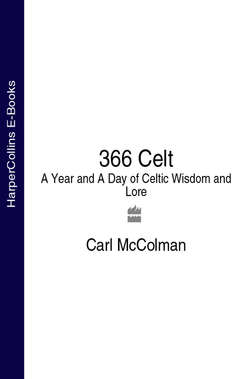Читать книгу 366 Celt: A Year and A Day of Celtic Wisdom and Lore - Carl McColman - Страница 43
36 THE PATH OF THE BARD
ОглавлениеThe bards of old did not merely sing praises and recite poetry of glorious and mighty deeds. Granted, that may have been their stock in trade when working for a wealthy patron, but legend insists that the bards could curse as well as charm. Indeed, Irish myth clearly describes how a talented bard’s satire could raise blisters on a previously unblemished face—a not inconsiderable feat, with profound implications for a king whose right to rule lay partially in his flawless physique. Indeed, much of the dramatic tension of the earliest cyde of Irish myths comes when the bard Cairbre satirizes the inhospitable Fomorian king Bres, causing boils to erupt on his face and thereby setting into motion the forces which would depose him—and lead to the greatest of legendary battles.
Cursing is not something that we moderns like to think of as a “spiritual” activity. Yet the interesting part of Celtic cultural history is that cursing is found among both the pagans and the Christians of old. Perhaps we don’t like cursing because we secretly wish to believe that the world is a benign place where no hostile forces exist. The ancients certainly knew better, and wanted their spiritual leaders to have a psychic arsenal ready to protect themselves from malevolent energies.
